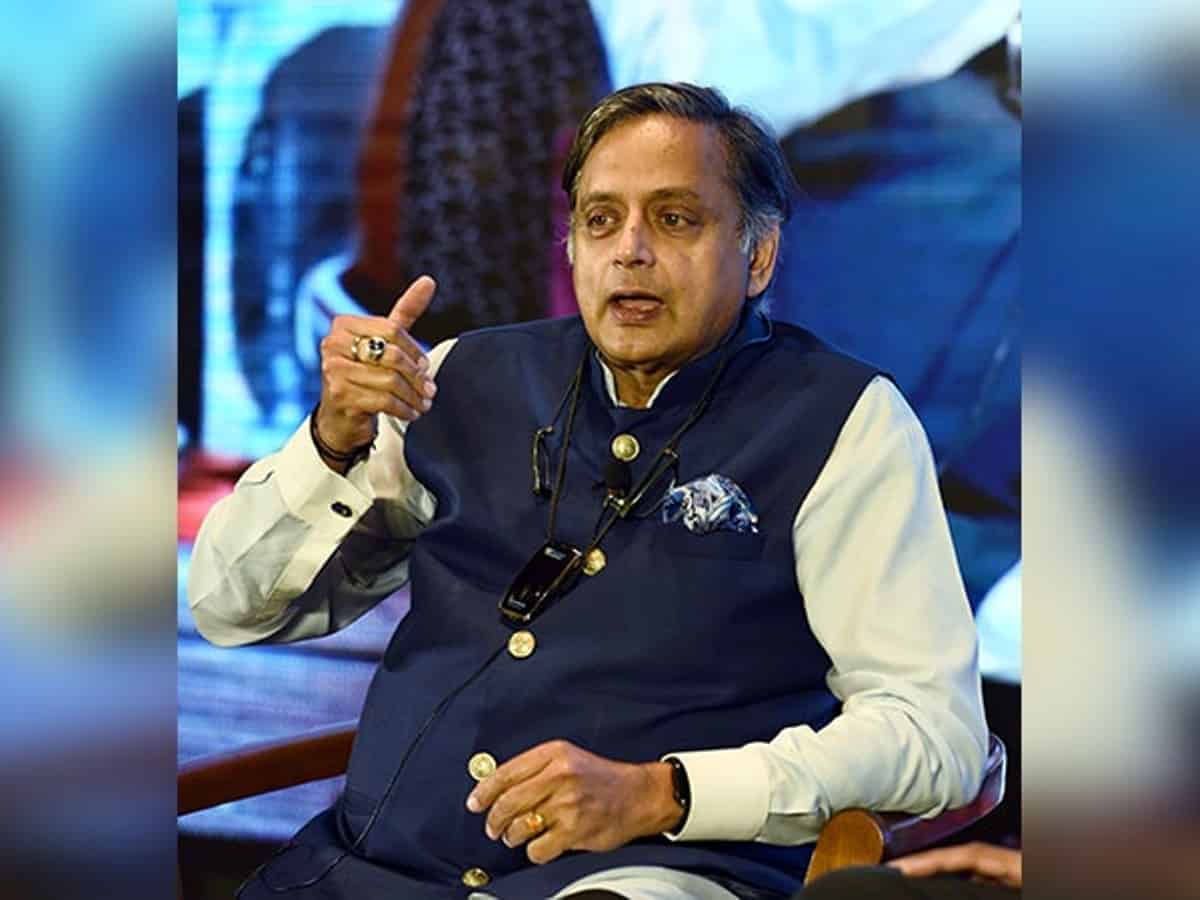
Kolkata: Congress MP Shashi Tharoor on Saturday said that with China sitting on India’s frontiers, it is not possible for India to remain “truly non-aligned”.
He said that the world being in disorder has shaken some of the assumptions of India’s foreign policy.
“We are still non-aligned and a member of the non-aligned movement. But what does that mean anymore is not very clear, because the two superpowers are no longer the US and the (erstwhile) Soviet Union. They are the US and increasingly China,” he said.
In that situation, Delhi cannot be truly non-aligned with a hostile China “sitting at India’s frontiers”, Tharoor said while speaking at a talk show at the Kolkata International Book Fair.
He said that if China were to take a “more directly belligerent posture, there is every likelihood that hard choices will have to be made by India”.
Tharoor said that though India is not in a treaty like NATO, it has partnered with the US, Australia and Japan in the QUAD.
“We do have a partnership that counts, similarly we are in a situation in which we are seen by the Chinese as more aligned with their enemies or with those countries trying to contain them,” Tharoor said.
The Lok Sabha MP from Kerala’s Thiruvananthapuram said that India is also a member of a new grouping I2U2 comprising India, Israel, United States and the United Arab Emirates.
“I don’t know what the future of I2U2 is in the aftermath of the Gaza conflict,” he said.
The noted writer and a former diplomat said that India has become much closer to Israel than it was in the past.
He said that strong bilateral relations exist between the two countries with Narendra Modi being the first Indian Prime Minister to visit Israel and his counterpart Benjamin Netanyahu coming to this country twice.
Stating that India is also going through a state of flux in view of the international developments, he said that Modi is trying to position India as the voice of the global south.
“That is an updated version of the non-aligned movement,” the Congress leader said.
He said that every government in India, starting from Independence, has been wedded to the idea of strategic autonomy.
Tharoor held that the one thing India wanted after Independence was not to be tied down to any other country’s perspective on the world, and that it wanted the right to decide for itself on the merits of every issue.
“When we signed the 20-year treaty on peace, friendship and cooperation with the Soviet Union, the world perceived us of having tilted to it, and similarly, with a lot of agreements signed now give to the world the perception that we are tilting towards the US, even if we profess to be non-aligned,” Tharoor said.
He said that it is not India’s fault that relations are not as good with Maldives under its present ruling dispensation as was during the previous government in the island nation and one has to see it in the context of that country’s policies.
“Gratitude doesn’t go very far in international affairs,” he said, adding that India has done a lot for the Maldives, from putting down a coup against their government, supplying plane-loads of water to it, but that does not go a long way in deciding such relationships.
He said that while relations with Maldives at present are not good, that with Sri Lanka was not too bad, while that with Bangladesh is pretty good.
“Relations with Pakistan are in bad shape, Nepal is more and more subject to Chinese influence and Chinese influence is also increasing in Bhutan,” he said about India’s position vis-a-vis smaller countries in the periphery.
“On the whole, we are not doing very well in the border areas, but not all of it is India’s fault,” he said that it is important that India’s foreign policy takes into account its national interest first.



